The Montreal Canadiens are currently in a bind with 16 forwards theoretically capable of making the team out of training camp. As a result, there’s likely at least one more Habs move to come this offseason, one or more forwards still to leave. None of them should be Christian Dvorak.
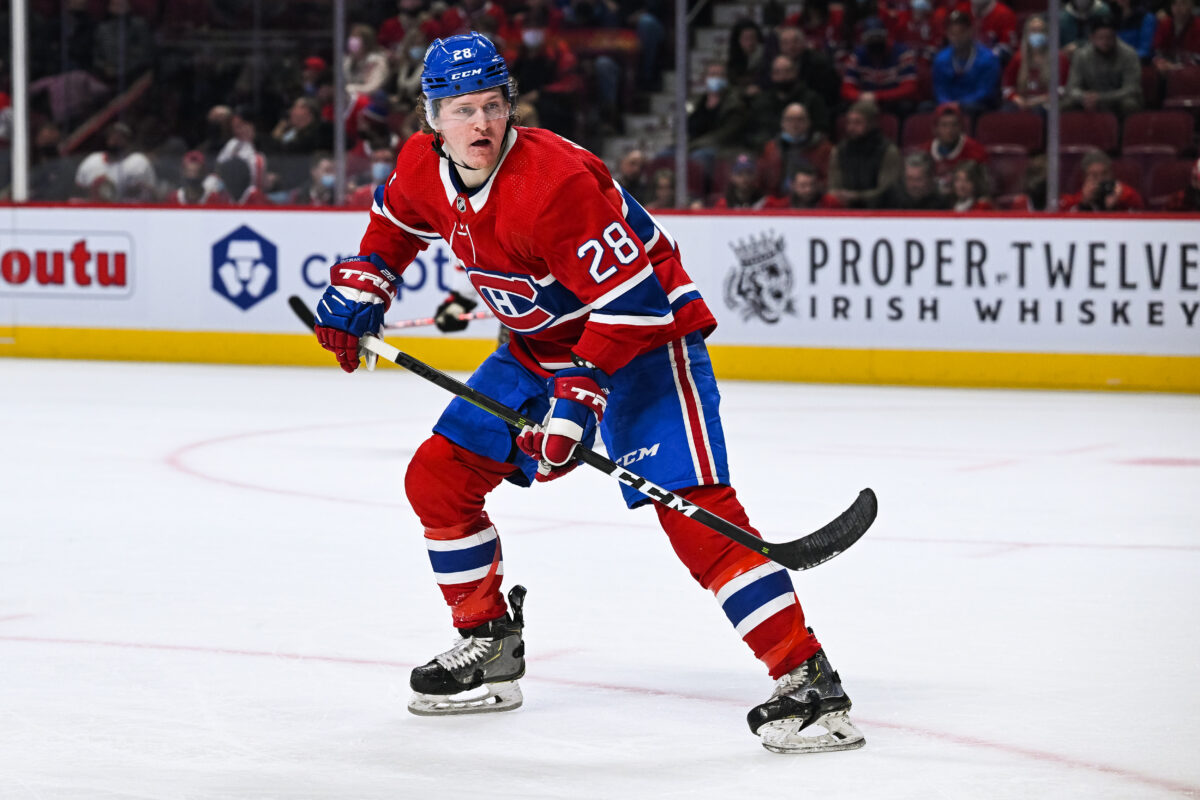
It must be said for the simple reason the Canadiens are specifically beyond set at center with no fewer than five at the position. So, logic dictates there’s a good chance a pivot has one foot out the door. It at least won’t be Sean Monahan, following his recent surprise acquisition. Even though he’s a pending unrestricted free agent, Monahan needs to build up his trade value before general manager Kent Hughes can parlay him into additional futures (beyond the conditional first-round pick they already got in the deal) at the next trade deadline.
Related: The Crazy Conditions of Canadiens’ 1st Round Pick From Flames
Dvorak’s is one name that’s been thrown around instead. Acquired by the previous regime to be the Habs’ second-line center last season, Dvorak simply may not be in Hughes’ long-term plans and could conceivably fetch a big haul on the trade market (if the Habs are patient). However, for the Habs to keep Dvorak, he doesn’t have to be in their long-term plans, with a deal that runs out in just a few years, in 2025. That’s the beauty of it all.
Keep Dvorak, Trade Monahan
Ultimately, the Canadiens don’t need to touch their center depth right now, not even until late this season. They can wait until the deadline to decide between Monahan and Dvorak, in which case the choice should be clear: Keep Dvorak and get as much as you can for Monahan.
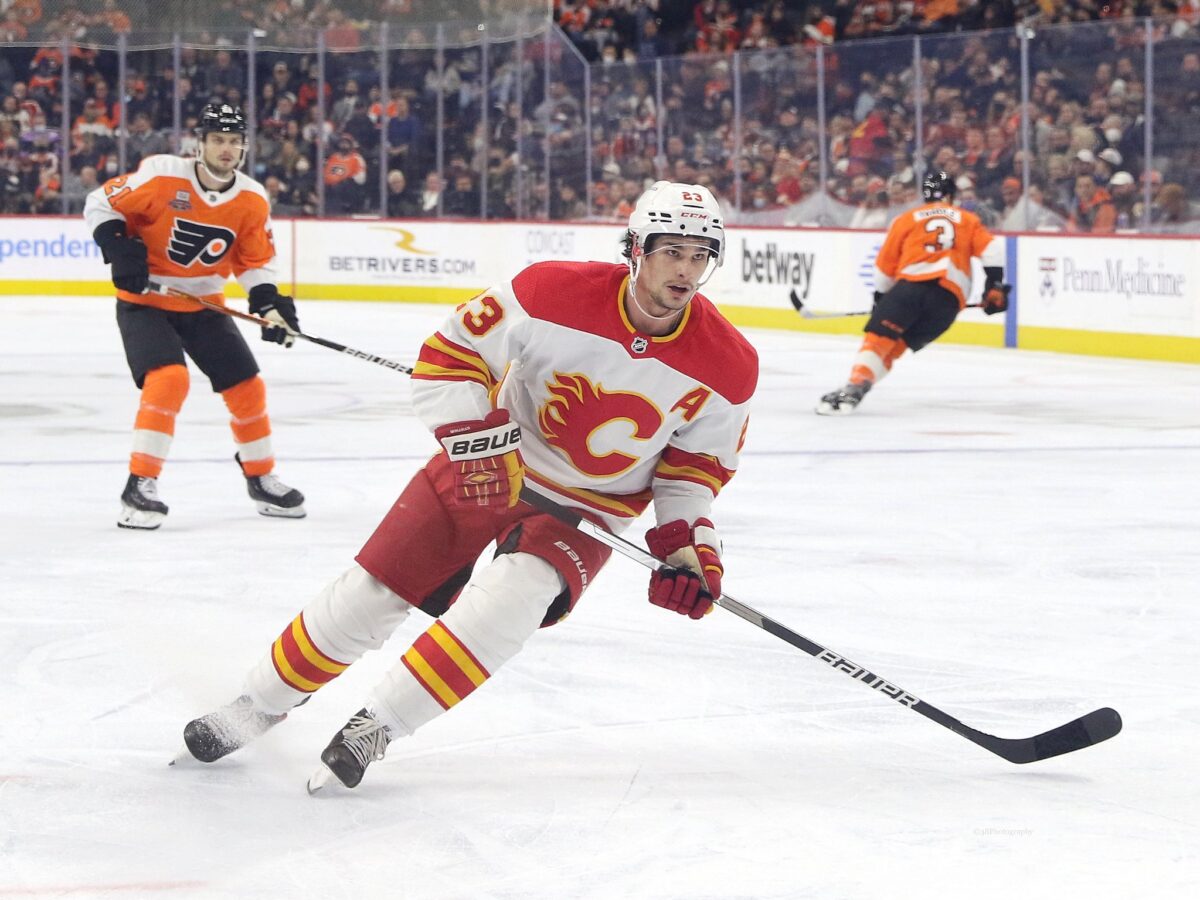
Obviously the situation is to a degree fluid. A lot can change. Hughes has gone on record as stating the Canadiens are open to keeping Monahan in a Habs jersey into the long term and that likely only happens if he’s proven to be both healthy, following several hip surgeries in the recent past, and productive. However, if both conditions are met, the next deadline would be the perfect opportunity to trade him instead. The Habs should take it and whatever they can get for Monahan and run.
The fact is Monahan is going on 28. He’s hardly old, but he’s also hardly a spring chicken. Based on his injury history, the Canadiens are logically only going to want to keep him if he rediscovers some semblance of the offensive capability he displayed back in 2018-19 when he scored a career-high 34 goals and 48 points. Ironically in such a situation they’d be taking on the most risk (by having to pay top dollar to keep him).
Monahan’s Problematic Potential Habs Extension
Preventing Monahan from hitting free agency in such an instance, in what will be his first shot at a (really) huge payday means two things. It first means opening up the vault, and secondly, giving Monahan a great deal of job security to the point it wouldn’t make sense for the Canadiens anymore. The Habs should be wary of any agreement where they would be securing Monahan’s services into his thirties, when forwards typically start to show signs of decline. It’s even more of a concern in Monahan’s case considering his injury history.
Now that’s all only if Monahan earns a rich next contract. What if a) he continues to struggle to produce after scoring just 99 points over the last three seasons or b) he even hits a respectable 0.5 points per game? Well, in the case of a), the Canadiens shouldn’t be able to cut ties with him fast enough. Honestly, ditto for b), because then Monahan has shown unfortunately that he’ll likely never become the player he once was again and that decline, being inevitable and all, has already hit. There’s no reason to extend him then either. There’s no (good) reason in any of the three cases.
Right now, Monahan is a great addition for several reasons. He helps insulate and bring along Kirby Dach, who was acquired to become a top-two center. However, that’s something at which Dvorak, who actually has been more successful at taking faceoffs in his career (52.4% success rate compared to Monahan’s 50.4%), can help as well (with Dach having a career success rate of just 34.6%).
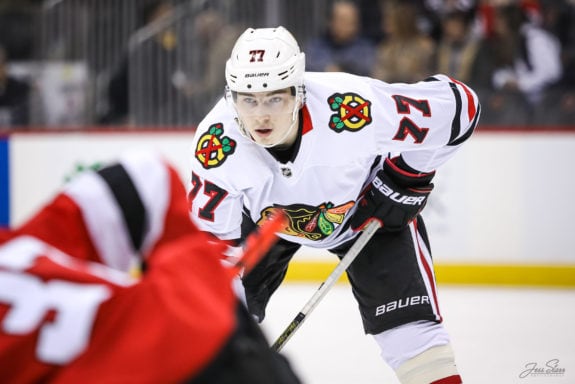
Furthermore, Dvorak is already locked up at a reasonable $4.45 million per year for, as mentioned previously, just the next three seasons, at which point he’ll only be 29. The Canadiens aren’t even taking on a risk keeping Dvorak in the fold. They would be by re-signing Monahan.
What’s Best for Dach’s Development
There’s obviously a risk in that Dach may not work out at center. If so, the Canadiens would ideally keep both Monahan and Dvorak. However, they won’t really know what they have in Dach or don’t within the next few years, well past the point at which they’ll have had to make a decision between the former two.
After all, the Canadiens were investing long term in Dach as a center when they acquired him for Alexander Romanov (in a three-team trade at the NHL Entry Draft). They pretty much ensured Dach would get limited minutes down the middle when they acquired Monahan, but playing Dach at wing is fine for now.
Granted, there is a chance the Habs play Dach at center this season with Nick Suzuki and Monahan, while Dvorak or Jake Evans wing it up instead. However, why put yourself in a position where you would have to play one of your stronger centers in Dvorak either on the fourth line or on the wing? It’s not like Dvorak is chopped liver, having come on significantly following the hiring of Martin St. Louis as head coach.
It points to the other reason the Canadiens took on Monahan. They’re rebuilding. Unless it’s adversely impacting the development of their young players (like Dach), just like wins and losses it shouldn’t matter where Dvorak gets played, only that he stays as an insurance policy for Dach. It doesn’t really matter if Monahan pans out either, because the Habs weren’t so much acquiring him as the pick with which he came.
Dvorak’s the insurance policy here. Monahan is another, making him the redundancy. Come a certain point, you need to take off Dach’s training wheels, and that means by the deadline, when the Habs should have no choice but to trade Monahan in a best-case scenario. The second-best, if there are no takers, is to let him walk next offseason. The absolute worst case would be attaching themselves to him long term, whatever Hughes may have said.
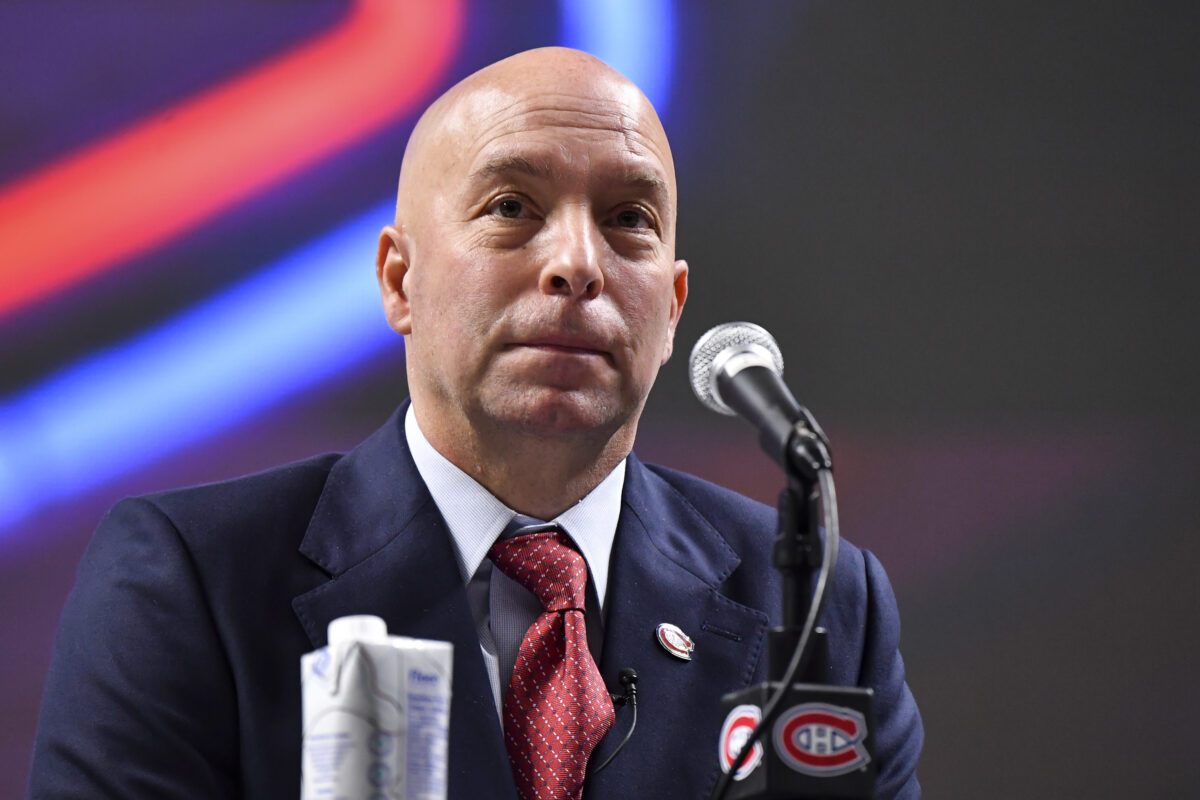
It should be pointed out, Hughes isn’t going to say they’re going to trade a recent acquisition in the media availability introducing him. So, take Hughes’ comments with a grain of salt. In the end, anything else to come out of the Monahan trade is gravy. It’s of course possible that means an extension in the eyes of the Canadiens, but obviously only if it makes sense for both sides.
Dvorak Satisfies Every Canadiens Requirement
Based on the Canadiens’ needs though, it’s hard to make a case it would make sense for the Habs. An extension would fly in the face of Dach’s development, especially if Dvorak satisfies every one of their requirements. You acquired Dach to be the second-line center. If not, why trade away Romanov? If so, where would Monahan fit in, seeing as Dvorak is a perfectly fine third-line one? He’s fairly prolific, better at faceoffs and inexpensive, carrying minimal risk all the while.
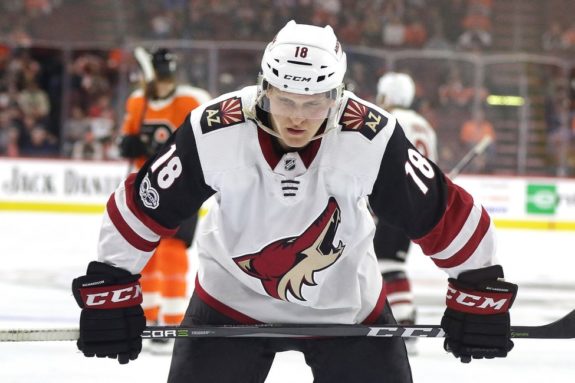
The only area in which an extended Monahan would be superior is potentially from a production standpoint, because, as mentioned earlier, there’s no point extending him otherwise. However is that superior hypothetical production worth it, when there’s no telling how long it will last and the Canadiens are only realistically due to contend in a half-decade without any goaltending right now or an experienced defense corps for that matter?
In that here and now, the Canadiens still need to shed a few players. Juraj Slafkovsky can easily be sent down and should not be seen as a 100% certainty to make the team out of training camp, as he acclimates to the North American game. That’s one partial solution. Maybe Paul Byron goes on long-term injured reserve. Maybe they try to send Michael Pezzetta down through waivers (despite his one-way contract).
If not, another solution is to trade a winger, like Evgeny Dadonov, Mike Hoffman, Joel Armia, Jonathan Drouin or even Josh Anderson because trading a center would be nonsensical. Suzuki’s not going anywhere, Evans brings exactly what they need for the fourth-line role he’ll inevitably play, Dach is the second-line center of the future and Monahan literally just got acquired (with the Calgary Flames having to pay the Habs to take him).
On the surface, Dvorak appears to be the odd man out. However, trading away a cost-effective forward performing up to expectations under contract through the prime production years of his career is what would truly be odd.
